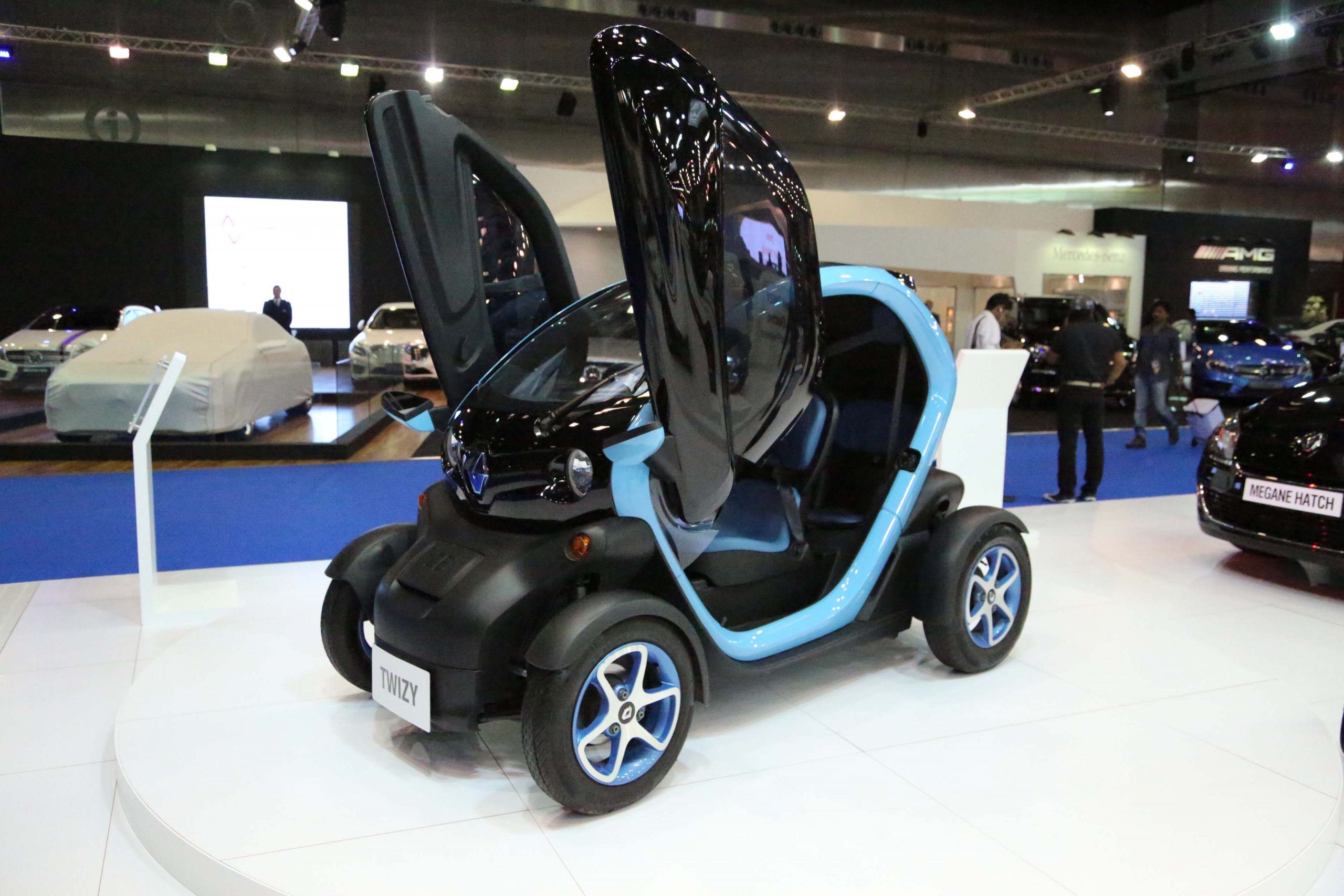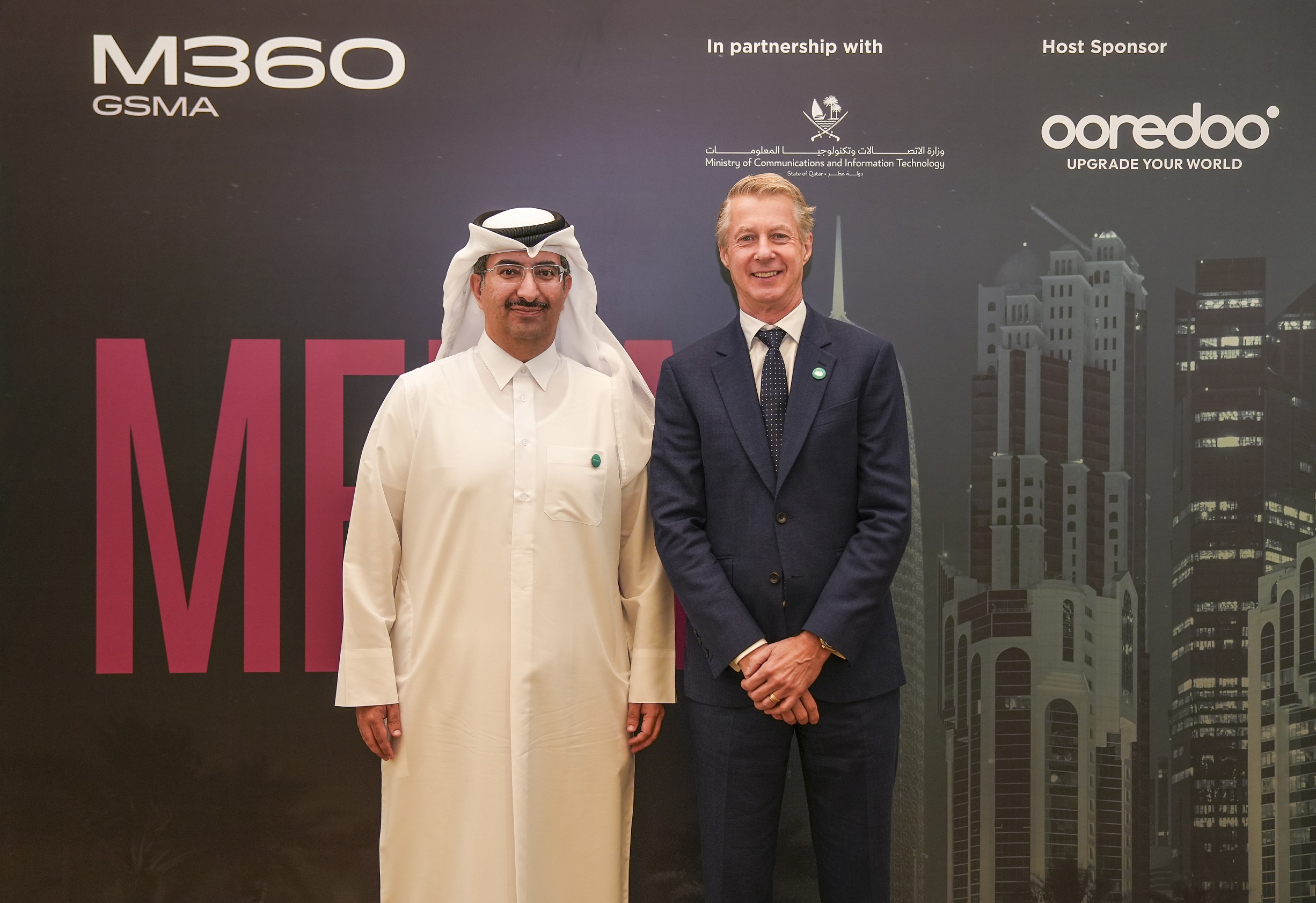
It’s been more than a year and two Qatar Motor shows since the Renault Twizy – a fully electric car – made its dramatic debut in Doha. But despite its warm reception, the vehicle’s future in Qatar and across the Gulf remains uncertain.
The two-door Twizy, which costs QR77,900, is an ultra-compact vehicle with two passenger seats, one behind the other, and a battery life of some 85 to 100km.

Renault’s first electric offering, it was named the top-selling plug-in vehicle in Europe when it launched in 2012. It is the first electric car to come to Qatar.
However, despite its success in France and neighboring countries, where the car is used as a safer option to motorbikes for teenagers who have just earned their driving permits, the Twizy – like any battery-powered automobile – has yet to be sold locally.
Speaking to Doha News at this year’s motor show, Declan McCluskey, general manager at Saleh Al Hamad Al Mana Co., said part of the problem was confusion about how to classify the car.
“The car has not been approved by the government yet. The GSO standards, which are common over the Middle East, have very defined categories. They can’t decide whether to classify the car as a motorbike – in which case drivers would be required to wear a helmet – or a car, which it’s too lightweight and small to classify as,” he said.
Elsewhere in the world
Elsewhere in the world, where the car is a more common sight on the roads, standardization bodies like the CEN-CENELEC and ETSI in Europe and the NHTSA in the United States have created workarounds to bring electric vehicles to the road.
In the US, battery-operated electric vehicles are classified as neighborhood electric vehicles, and are only allowed to be driven on roads with a maximum speed limit of 72 km/hr.

In Europe, they are classified as motorized quadricycles, and follow similar regulations on speed limits and roads.
The regulations, which came into practice some four to five years ago, were spurred in large part by rising fuel costs, and a growing conscientiousness about reducing pollution.
In fact, US and EU governments have even instituted subsidies and economic incentives in the form of tax credits, grants and bonus payments for customers that buy fully electric or hybrid vehicles that use alternative fuel.
Regional marketability
Mindful that Qatar’s penchant for big cars and cheap petrol rates don’t necessarily incentivize residents to look for alternative options, McCluskey said he still anticipates that the car, once approved, would prove to be a success here.
“The idea is to show people what electric is, and what electric can do. We’re here to inspire. While some customers may buy the car as a novel addition or a toy car, we have greater aspirations for it,” he said.
He added that the car could be used as first responder vehicles in malls, parks, conference halls like the Qatar National Convention Center, Souq Waqif and the airport.

Currently, the golf carts that are used by medics and emergency staff only reach speeds of 10 km/hr, while the Twizy can do 65 km/hr. “In crises, time is everything, and we hope that these cars can be used to that effect.”
However, not everyone sees a bright future for electric cars in the Gulf.
In an article in Qatar Today last year, Thomas Milz, the managing director of Volkswagen Middle East, said that the region’s climate could render electric models ineffectual.
“The move to electric cars in this region would especially be in the summer months very, very challenging. An electric car needs to have the power for driving from the batteries. If those batteries are also used for air conditioning, that would drain the batteries dramatically,” he said.
He added that other eco-friendly technologies like compressed natural gas engines and hybrid cars, which use a combination of fuel and electricity to run, could be more practical green driving options for the Middle East.
In fact, Takayuki Yoshitsugu, the MENA representative for Toyota and Lexus, told Doha News that the Lexus LS 660 Hybrid, which uses a petrol engine with an electric motor, is one of Lexus Qatar’s more popular offerings.
Would you drive an electric car in Qatar? Thoughts?







